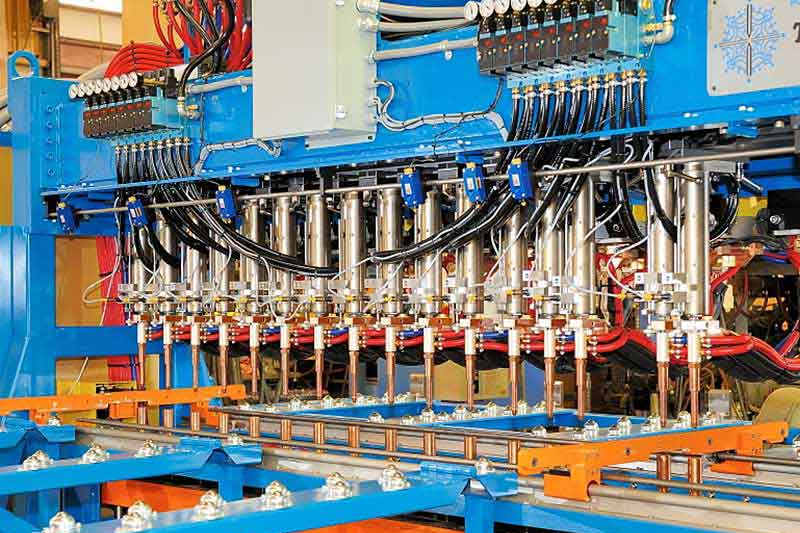
Resistance Welding Machines and Fixtures
Resistance Welding Machines and Fixtures are essential tools in industrial manufacturing, particularly for applications requiring the joining of metal components through welding.
These machines use electrical resistance to generate heat and join metal parts through a welding process. The heat is produced by passing an electrical current through the metal pieces, which causes them to melt and fuse together. Commonly used in automotive, aerospace, electronics, and metal fabrication industries for welding components such as car bodies, electrical contacts, and structural parts.
- Welding Capacity: Capable of handling various metal thicknesses and types, including steel, aluminum, and copper.
- Current Control: Advanced models feature precise control over electrical current to manage the welding process and ensure quality joins.
- Electrode Types: Different electrodes (e.g., copper, alloy) are used depending on the material and welding requirements.
- Cooling System: Integrated cooling systems to maintain the electrodes and machine at optimal temperatures during operation.
- Control Systems: Modern machines are equipped with programmable logic controllers (PLC) and digital displays for accurate settings and monitoring.
- Consistency: Ensures uniform weld quality and strength by maintaining controlled conditions.
- Efficiency: Provides high-speed welding capabilities, reducing production times.
- Automation: Some models include automation for feeding, positioning, and handling, improving efficiency and reducing labor costs.
- Safety: Designed with features to ensure operator safety, such as automatic shut-offs and protective enclosures.